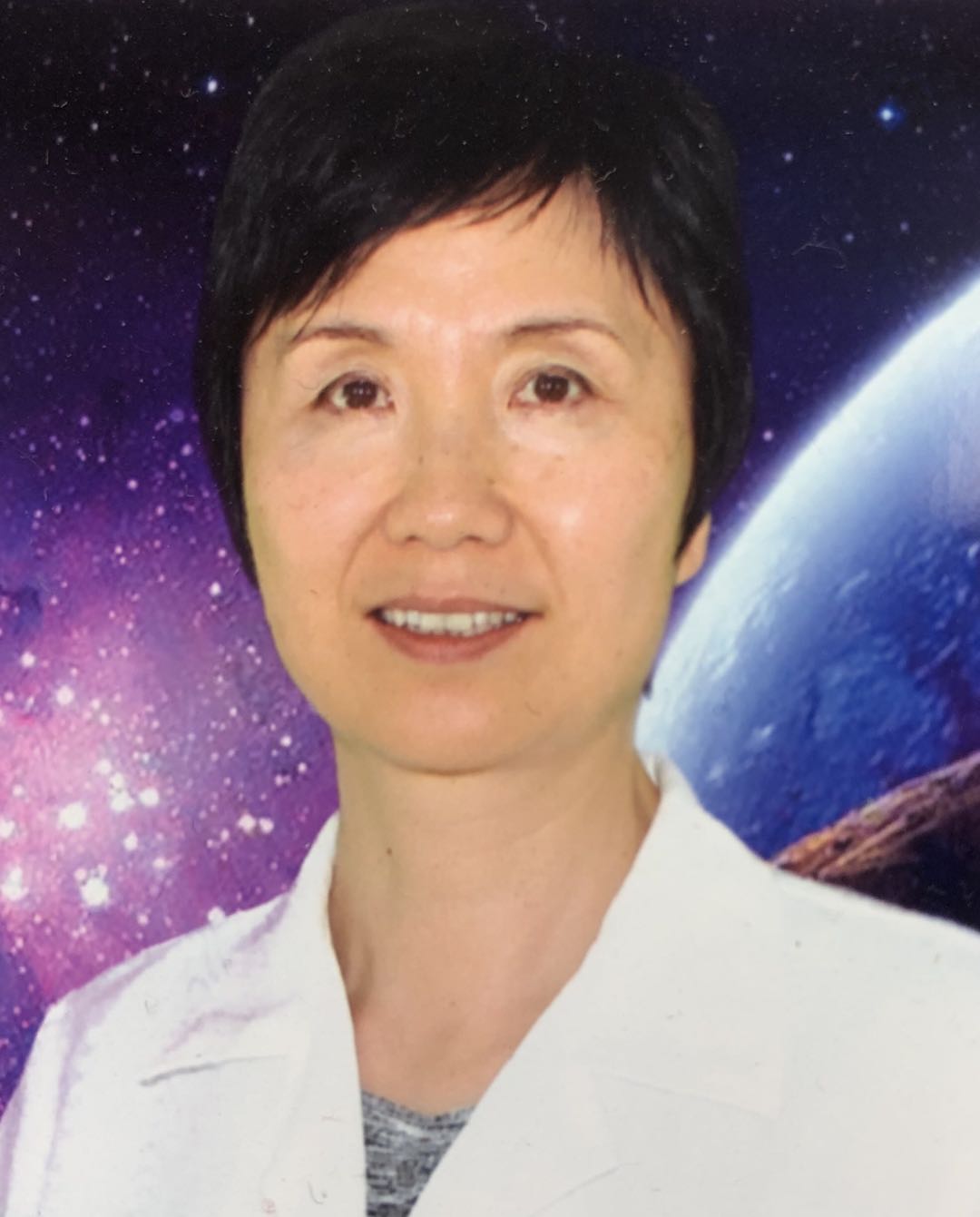
Feng Bai(Professor) Professor
School of Basic Medical Sciences
Professor
Department of Pathology
BIOGRAPHICAL SKETCH
NAME: Feng Bai
POSITION TITLE: Professor, Department of Pathology, Shenzhen University School of Medicine
OFFICE PHONE: 0755-26937526; EMAIL: baifeng@szu.edu.cn
EDUCATION/TRAINING
INSTITUTION AND LOCATION | DEGREE (if applicable)
| Completion Date MM/YYYY
| FIELD OF STUDY
|
Lanzhou Medical College, China | B, MED. | 1988 | Medicine |
Lanzhou Medical College, China | M.S. | 1994 | Pathology |
Kyushu University, Japan | Ph.D. | 2000 | Medical Sciences |
University of North Carolina at Chapel Hill | Postdoctoral | 2000-06 | Cancer Research |
A.Personal Statement
I graduated from Lanzhou Medical College, China and received a bachelor’s degree in Medicine (M.D. equivalent) in 1988 and a Master’s degree in Pathology in 1994. I spent 7 years training in the field of human pathology at Lanzhou Medical College followed by 5 years of training in mouse pathology at Kyushu University, Japan. Over the course of 18 years, I have acquired working experience in the pathology of genetically engineered mouse model systems. While working as a postdoctoral fellow and a research associate in Dr. Yue Xiong’s lab at UNC-CH, I characterized more than 30 different mouse mutants for various CDK inhibitor genes and tumor suppressors as well as demonstrated their functions in controlling stem/progenitor cells and tumorigenesis of multiple tissues. In 2003, I received a postdoctoral fellowship award from the Prostate Cancer Research Program of the United States Department of Defense. In 2009, I discovered that p18INK4c is a downstream target of GATA3 and restrains mammary luminal progenitor cell proliferation and tumorigenesis. Since moving to the University of Miami as an associate scientist in 2011, I discovered that heterozygous germline deletion of Brca1 alters the fate of mammary luminal cells and transforms them into basal-like breast cancers. I also discovered that BRCA1 suppresses epithelial-to-mesenchymal transition and stem cell dedifferentiation during mammary gland and tumor development. I demonstrated that p19ink4d controls pituitary anterior lobe cell proliferation. More recently, I discovered that estrogen promotes estrogen receptor negative BRCA1 deficient tumor metastasis. In collaboration with Dr. Yanbin Zhang, we discovered that FANCA promotes DNA double strand break repair by catalyzing sing-strand annealing and strand exchange. In Dec. 2018, I moved to China and became a full professor at the Shenzhen University School of Basic Medical Science.
1. Pei XH*, Bai F*, Smith MD, Usary J, Fan C, Pai SY, Ho IC, Perou CM, Xiong Y. (2009) CDK inhibitor p18INK4c is a downstream target of GATA3 and controls mammary luminal progenitor cell proliferation and tumorigenesis Cancer Cell. 15:389-401. *equal contribution.
2. Bai F, Smith MD, Chan HL, Pei XH. (2013) Germline mutation of Brca1 alters the fate of mammary luminal cells and causes luminal-to-basal mammary tumor transformation. Oncogene. 32:2715-2725. Featured Article.
3. Bai F, Chan HL, Scott A, Smith MD, Fan C, Herschkowitz JI, Perou, CM, Livingstone AS, Robbins DJ, Capobianco AJ, Pei XH. (2014) BRCA1 suppresses epithelial-to-mesenchymal transition and stem cell dedifferentiation during mammary and tumor development. Cancer Res. 74:6161-6172.
B.Positions and Honors
Positions and Employment
1988- 1990 Research Associate, Department of Pathology, Lanzhou Medical College, Lanzhou, China.
1994- 1995 Assistant Professor, Department of Pathology, Lanzhou Medical College. Lanzhou, China.
1995- 1996 Visiting Scholar, Research Institute for Diseases of the Chest, Kyushu University. Fukuoka,Japan.
1996- 2000 Graduate Student, Research Institute for Diseases of the Chest, Kyushu University, Fukuoka, Japan. Advisor: Dr. Nobuyuki Hara
2000-2006 Postdoctoral Fellow in the lab of Dr. Yue Xiong, Lineberger Comprehensive Cancer Center, University of North Carolina at Chapel Hill, Chapel Hill,NC, USA
2006-2010 Research Associate in the lab of Dr. Yue Xiong, Lineberger Comprehensive Cancer Center, University of North Carolina at Chapel Hill, Chapel Hill,NC, USA
2011-2018 Associate Scientist, Molecular Oncology Program, DeWitt Daughtry Family Department of Surgery, Sylvester Comprehensive Cancer Center,University of Miami, FL, USA
2018-Present Professor, School of Basic Medical Sciences, Shenzhen University,China
Other Experience and Professional Memberships
Teaching Experience
1988 - 1995 Department of Pathology (for medical students), Lanzhou Medical College, China.
Clinical Experience
1989 - 1995 Lanzhou Medical College,China Routine pathological diagnosis for patient samples from the affiliated hospitals of Lanzhou Medical College, China.
Professional Memberships
1988-1994 Member, Chinese Society of Pathology
1995-2000 Member, Japanese Society of Lung Cancer
Honors
1996 Research Award, Kyushu University. Japan
1998 Foreign Graduate Student Scholarship. Japan
2003 Department of Defense (DOD): Postdoctoral Traineeship Award, USA
C.Contributions to Science
1. Investigation of the role of INK4 family of cell cycle inhibitors in endocrine tumorigenesis and hearing loss.
I discovered that the function of p18Inkc in suppressing endocrine tumor development is fully dependent on Cdk4 and p18Inkc collaborates with Men1 to suppress endocrine tumorigenesis. I also discovered that p19Ink4d is the major cell cycle inhibitor gene that controls pituitary anterior lobe cell proliferation and tumorigenesis. We demonstrated that the function of p19 in suppressing pituitary cell proliferation is independent of Cdk4, and that loss of Cdk4 rescues p19INK4d deficiency induced hearing loss.
a. Pei XH, Bai F, Tsutsui T, Kiyokawa H, Xiong Y. (2004) Genetic evidence for functional dependency of p18Ink4c on Cdk4. Mol Cell Biol. 24, 6653-6664.
b. Bai F*, Pei XH*, Nishikawa T, Smith MD, Xiong Y. (2007) p18Ink4c, but not p27Kip1, collaborates with Men1 to suppress neuroendocrine organ tumors. Mol Cell Biol. 27, 1495-1504. *equal contribution.
c. Bai F, Chan HL, Smith MD, Kiyokawa H, Pei XH. (2014) p19Ink4d is a tumor suppressor and controls pituitary anterior lobe cell proliferation. Mol Cell Biol. 34:2121-2134. (Cover article).
d. Ma Q*, Grati M*,Bai F*,PeiJ,Pei XH,Liu X. Rescue from early onset hearing loss in a mouse model lacking the cyclin-dependent kinase inhibitor p19Ink4d. Cell Death & Disease. 2016;10;7:e2131. *equal contribution
2. Investigation of the physiological function of INK4 genes.
I discovered that p18Inkc is a haploinsufficient tumor suppressor. I also discovered that p18Ink4c collaborates with Men1 to constrain lung stem cell expansion and suppress non-small-cell lung cancers, and with Pten to constrain a positive regulatory loop between cell growth and cell cycle control. I demonstrated that p16INK4a loss rescues functional decline of Brca1-deficient mammary stem cells.
a. Bai F, Pei XH, Godfrey VL, Xiong Y. (2003) Haploinsufficiency of p18INK4c sensitizes mice to carcinogen-induced tumorigenesis. Mol Cell Biol. 23, 1269-1277.
b. Bai F*, Pei XH*, Pandolfi PP, Xiong Y. (2006) p18 Ink4c and Pten constrain a positive regulatory loop between cell growth and cell cycle control. Mol Cell Biol. 26, 4564-4576. *equal contribution.
c. Pei XH*, Bai F*, Smith MD, Xiong Y. (2007) p18Ink4c collaborates with Men1 to constrain lung stem cell expansion and suppress non-small-cell lung cancers. Cancer Res. 67, 3162-3170. *equal contribution.
d. . Scott A, Bai F*, Chan HL, Liu S, Slingerland JM, Robbins DJ, Capobianco AJ, Pei XH*. p16INK4a loss rescues functional decline of Brcac1-deficient mammary stem cells. Cell Cycle. 2017;6:759-764. *Corresponding Author.
3. Investigation of the function of Brca1 and FANCA genes.
I discovered that estrogen promotes estrogen receptor negative BRCA1-deficient tumor initiation and progression. Through collaboration with Dr. Yanbin Zhang, we demonstrated that FANCA promotes DNA double strand break repair by catalyzing single-strand annealing and strand exchange.
a. Wang C, Bai F*, Zhang L, Li E, Pei XH. Estrogen promotes estrogen receptor negative BRCA1-deficient tumor initiation and progression. Breast Cancer Research. 2018; 74:1-17. *Corresponding Author.
b. Benitez A, Liu W, Palovcak A, Wang G, Moon J, An K, Kim A, Zheng K, Zhang Y, Bai F, Mazin AV, Pei XH, Yuan F,Zhang Y. (2018) FANCA promotes DNA double strand break repair by catalyzing single-strand annealing and strand exchange. Mol Cell. 2018;71(4):621-628.
Complete List of Published Work in NCBI (a total of 36 peer-reviewed publications)
D.Additional Information: Research Support and/or Scholastic Performance
Current Support:
1. Title: Suppression of prostate cancer by PTEN and P18INK4C
PI: Bai F
Agency: DOD Prostate Cancer Research Program Award (W81XWH-04-1-0011)
Amount: $100,000(¥685,000)
Period: 1/1/2003–1/1/2005
2. Title: BRCA1 controls mammary stem/progenitor differentiation and proliferation, epithelial-mesenchymal transition and tumorigenesis
CI: Bai F
Agency: DOD Breast Cancer Research Program (BCRP)
Type: Idea Award (W81XWH-10-1-0302)
Amount: $554,491(¥3,800,000)
Period: 4/15/2010–12/31/2012
3. Title: Function of Brca1 in maintaining mammary luminal cell fate and suppressing epithelial to mesenchymal transition and tumorigenesis.
CI: Bai F
Agency: Sylvester Braman Family Breast Cancer Institute, University of Miami
Type: Developmental Grant
Amount: $50,000 (¥343,000)
Period: 9/1/2011–8/31/2013
4. Title: Genetic analysis of the role of GATA3 in breast tumorigenesis.
CI: Bai F
Agency: Flight Attendant Medical Research Institute (FAMRI)
Amount: $50,000(¥343,000)
Period: 07/01/2014– 6/30/15
5. Title: The role of Brca1 in suppressing dedifferentiation in breast tumorigenesis
CI: Bai F
Agency: American cancer society institutional research grant
Type: Pilot project grant
Amount: $45,000(¥309,000)
Period: 10/1/2013–9/30/15








用户登录
还没有账号?
立即注册